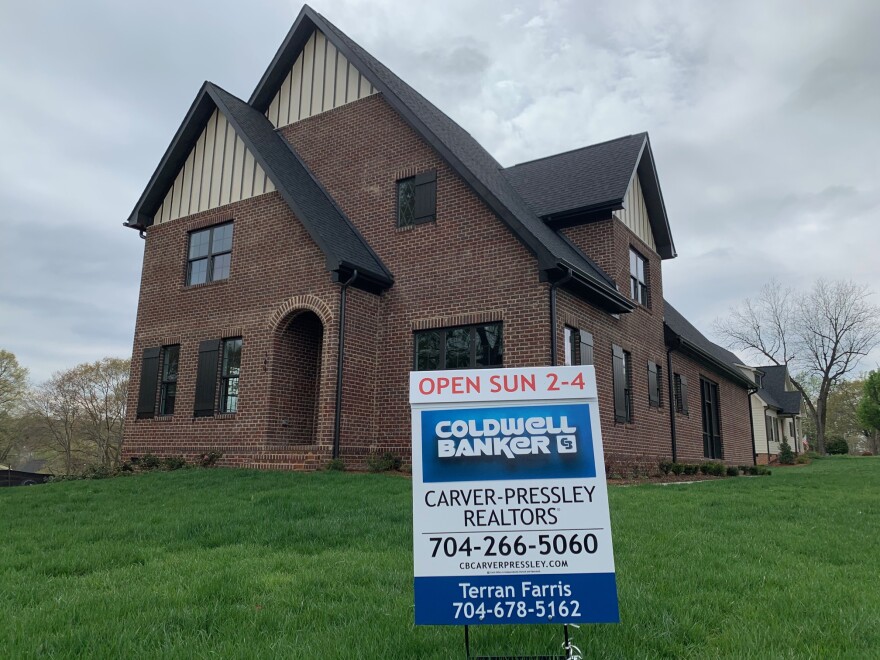Mecklenburg County Manager Dena Deorio on Thursday presented a budget plan that increases property taxes and gives Charlotte-Mecklenburg Schools an additional $56.4 million. The property tax increase would mean about $57 more a year for the owner of a median-priced home.
Diorio called it “a lean budget” that balances tight revenue and growing needs.
“Mecklenburg County’s expansion of services in recent years has been unprecedented,” she said. She said residents and elected officials say they want to keep investing in “health access, housing insecurity, educational attainment, workforce development, environmental stewardship, early childhood development and reducing racial disparities as a cross-cutting factor that is embedded in all the county’s work.”
But she said maintaining that work is challenging: “New resources are limited in ways that we have not seen in some time. We are experiencing revenue shortfalls that the county cannot seamlessly absorb.”
Among the fiscal challenges: Revenue from property tax and sales tax isn’t growing as fast as it has in recent years, while expenses for everything from building supplies to salaries are rising. The register of deeds is expecting a $5.6 million decrease because of “the slowing real estate market and increasing interest rates.” Add losses from other sources and the county is down just over $20 million, she said.
But Diorio’s $2.5 billion budget plan is up by $130 million, or 5.5%. That would come from:
- Raising the property tax rate from 47.31 cents per $100 assessed value to 48.81 cents. One cent of that was previously approved for capital projects and another half cent covers growth in the operating budget. For an owner of the median home, valued at $383,000, the annual bill would rise from about $1,812 to $1,869.
- Pulling $105 million the county’s fund balance, which Diorio described as “a rainy day fund.” She said a healthy balance will remain.
- Finding other cost cuts to offset some of the increases.
Charlotte City Manager Marcus Jones has also presented a budget calling for a 1.5-cent property tax increase, the first in six years. Combined, the city and county estimates mean that the owner of a median-priced home in Charlotte (roughly $384,000) would pay about $111 more a year in property taxes next year.
Taxes in the six towns would vary with the rates set by their boards.
The city, the county and CMS have one theme in common: They’re trying to raise employee pay, especially for the lowest-paid staff. The CMS request to the county includes money to bring its minimum wage to $20 an hour, while the city hopes to go from $20 to $23.
Diorio’s plan includes a 3% across-the-board raise for county employees, with performance raises averaging another 2.5%.
Here are some of the highlights of Diorio’s proposal, which commissioners will start reviewing next week:
CMS
The plan calls for providing $643 million in operating money and almost $33 million in capital funding, for a total increase of $56.4 million or 9.1%. That’s the full amount requested by the CMS board, which does not have taxing authority.
“Under educational attainment our most important partner is Charlotte-Mecklenburg Schools, and I have appreciated working with Superintendent Dr. Crystal Hill as she charts a new course for CMS,” Diorio said. “From kindergarten to high school, we want the best for Mecklenburg County’s children.”
Increases in county money for CMS would go toward raises for hourly staff and teachers, take-home laptops for students, replacement of HVAC systems and roofs on aging schools and overall rising costs. The county provides about a third of the school system's funding, with the balance mostly from the state.
Housing security
The budget includes almost $17 million in new money for housing, which would go to A Home for All, Forest Pointe Place supportive housing, critical home repairs and payments to support preserving older, less expensive housing.
“These efforts will help make homelessness in our community rare, brief and nonrecurring,” Diorio said.
Health access
The budget plan contains increases for dental programs, vaccinations and additional school nurses. Medic would get 12 new ambulances for its fleet.
Central Piedmont
The plan would cover Central Piedmont Community College’s request for an additional $2 million in operating money and $6.8 million in capital maintenance.
Diorio called Central Piedmont “the county’s pivotal partner” in workforce development. “From advanced manufacturing to health care to computer technology, Central Piedmont continues to be the first choice of many residents and our students who are working toward improved economic mobility and their own aspirations for a successful future,” she said.
Environment and green space
Diorio’s proposal allocates just over $47 million to advance the Environmental Leadership Action Plan. That includes $35 million to buy land and preserve trees, along with spending for electric vehicles, farmland preservation and more electric vehicle charging stations.
Next steps
County commissioners will hold a budget workshop at 2:30 p.m. Wednesday and a public hearing at 6 p.m. May 23. They’ll take a preliminary budget vote on May 30, with final approval scheduled for June 4. The new fiscal year starts July 1.


